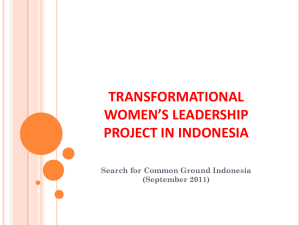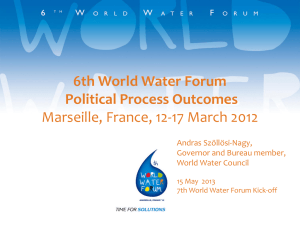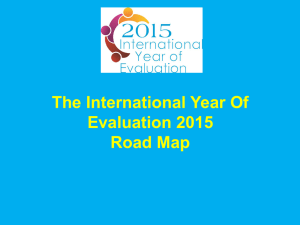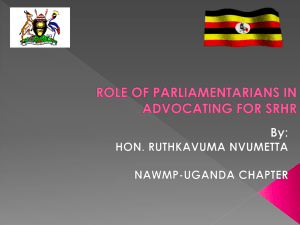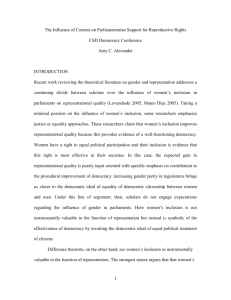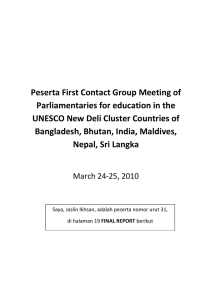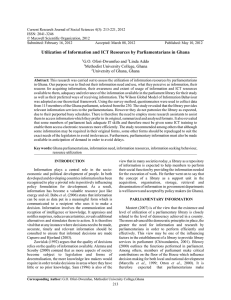Prosperity - Deepening Engagement on South Africas Trade Policy
advertisement
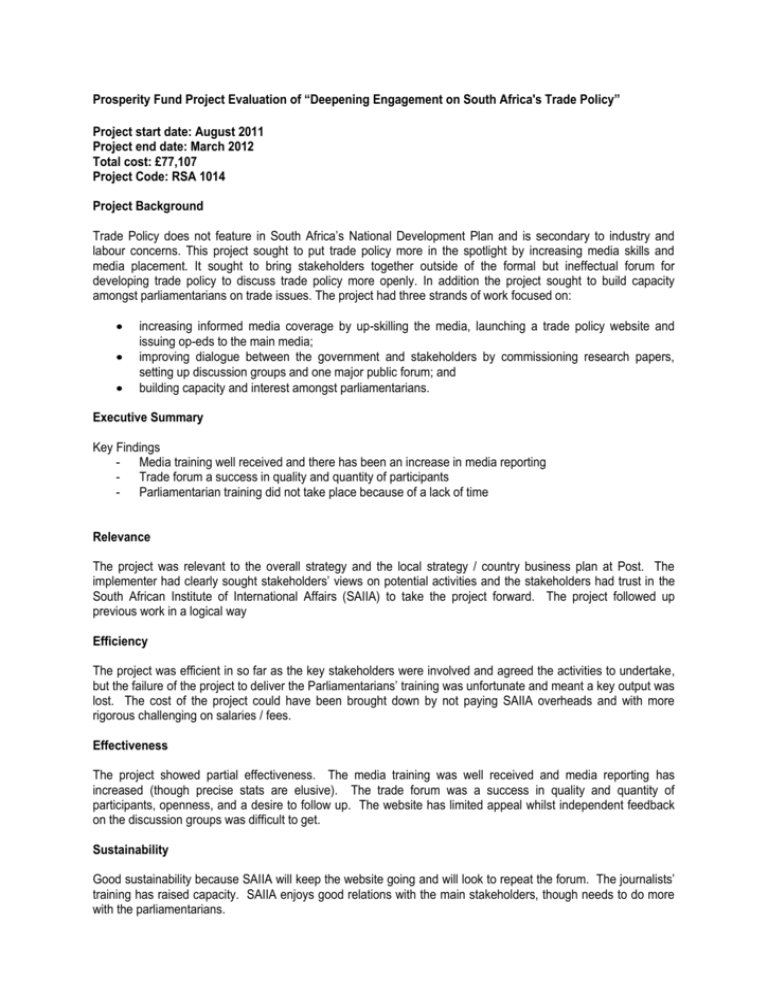
Prosperity Fund Project Evaluation of “Deepening Engagement on South Africa's Trade Policy” Project start date: August 2011 Project end date: March 2012 Total cost: £77,107 Project Code: RSA 1014 Project Background Trade Policy does not feature in South Africa’s National Development Plan and is secondary to industry and labour concerns. This project sought to put trade policy more in the spotlight by increasing media skills and media placement. It sought to bring stakeholders together outside of the formal but ineffectual forum for developing trade policy to discuss trade policy more openly. In addition the project sought to build capacity amongst parliamentarians on trade issues. The project had three strands of work focused on: increasing informed media coverage by up-skilling the media, launching a trade policy website and issuing op-eds to the main media; improving dialogue between the government and stakeholders by commissioning research papers, setting up discussion groups and one major public forum; and building capacity and interest amongst parliamentarians. Executive Summary Key Findings - Media training well received and there has been an increase in media reporting - Trade forum a success in quality and quantity of participants - Parliamentarian training did not take place because of a lack of time Relevance The project was relevant to the overall strategy and the local strategy / country business plan at Post. The implementer had clearly sought stakeholders’ views on potential activities and the stakeholders had trust in the South African Institute of International Affairs (SAIIA) to take the project forward. The project followed up previous work in a logical way Efficiency The project was efficient in so far as the key stakeholders were involved and agreed the activities to undertake, but the failure of the project to deliver the Parliamentarians’ training was unfortunate and meant a key output was lost. The cost of the project could have been brought down by not paying SAIIA overheads and with more rigorous challenging on salaries / fees. Effectiveness The project showed partial effectiveness. The media training was well received and media reporting has increased (though precise stats are elusive). The trade forum was a success in quality and quantity of participants, openness, and a desire to follow up. The website has limited appeal whilst independent feedback on the discussion groups was difficult to get. Sustainability Good sustainability because SAIIA will keep the website going and will look to repeat the forum. The journalists’ training has raised capacity. SAIIA enjoys good relations with the main stakeholders, though needs to do more with the parliamentarians. Impact Hard to measure because targets were not quantified and evidence not well presented. Some evidence that media reporting is up. Feedback from main stakeholders was positive about the new opportunities to learn, discuss and take forward. Some new ground broken on union policy, transparency, DTI engagement and services liberalisation but real wins will take longer to emerge in what is difficult ground. Main Lessons Learned and Recommendations 1. More time – either through earlier starts or later multi-year finishes – enables much greater ambition. The parliamentarians training fell victim to a lack of time 2. We should be more rigorous in quantifying outputs with implementers so we can gauge ambition and measure success. We also need to demand more evidence of impact to complement implementers’ reports 3. We should not be afraid to question costs as implementers might be quoting high. Certainly overheads should not be paid for 4. This project only achieved part of the higher aims on South African trade policy and additional work could be attempted to continue the process by eg a. Working with parliamentarians (trade and environment both have an interest) and possibly expanding it to include Pan-African MPs who have fewer conflicting interests and can see the bigger picture eg on regional trade agreements. b. linking trade policy issues to related issues of concern closer to home eg environment policy pressures that could adversely affect geographically distant markets, or coal producers, like RSA improving analysis of trade statistics. The DTI said there was a big gap so policy was being made in the dark.
